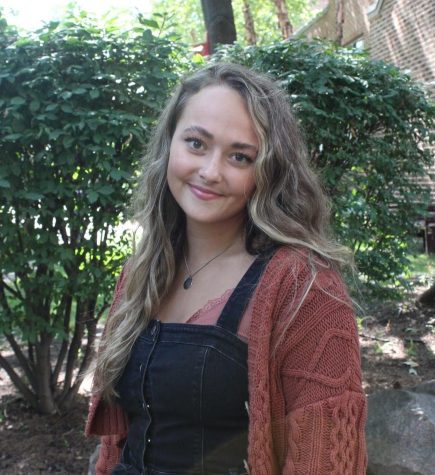The importance of personal identity
How blending different facets of oneself can prove to be difficult
February 2, 2022
When I was in high school, I found it hard to admit to who I was behind the scenes: feminist, politically independent, an ally and so on.
In my small town, it was better to be Christian and conservative, at least from my point of view.
Now that I have entered the adult world and expanded my horizons toward the city and gradually away from my hometown, I feel like this narrative has switched.
In the collegiate atmosphere, I feel radically comfortable expressing my feminist point of views and my support of the LGBTQ+ community and minority groups, as well as feeling free to express my mixed political views, which don’t necessarily fit into any defined ideological lane.
However, I feel reluctant to proclaim myself as a Christian, specifically in a social setting.
I know this is the opposite of the point of view I should have as a follower of Christ; I should spread the word of God unapologetically.
However, as someone who believes that people should make their own decisions about their own bodies, believe in whatever God, gods or no God at all, and be true to them makes them who they are, I find it hard to impress anything on anyone that may make them feel uncomfortable. Therein lies my discontent.
How do I express my love for God when so often that is stereotyped as judgment, or even hatred, of others?
Even writing this has me beginning to sweat.
As I am exiting adolescence and have discovered in my developmental coursework in my educational matrix, I am still struggling to become concrete in my own identity.
Over my three years in the college environment, I have had the support and education from my peers to be able to prioritize my mental health, support issues faced by women openly and advocate for others.
I have also learned how to put myself first and prioritize the longevity of a happy life over the immediacy of now.
What I am struggling with now, though, is being proud of all the parts of who I am and how to blend Christianity in with the rest of my outward values.
For example, how am I supposed to blend Christianity and feminism?
How am I to maintain a healthy social life but also avoid behaviors that further the gap between me and God? We are exposed to this temptation every day: partying, toxic, shallow friendships, immediate pleasures, and so on.
I was reminded of the Catholic values of our university, however, during a School of Education meeting Jan. 25. It was led by Janice Whiteman, director of the School of Education, and she began her presentation with a prayer.
This was so refreshing for me and was a revelation of the Lord’s presence in all I do, especially in the classroom, as he shapes my purpose as an educator.
My point is, as I become an adult, I want to be proud of every part of what makes me who I am, and I want to continue to foster a society and advocate for everyone to have the same privilege.
I want my current and future classrooms, my family and my world to continue to be a reflection of openness and acceptance.
To further this, though, I want to explore how to support this outlook of unconditional acceptance, which has been impressed upon me by my faith, within myself, so that I can reflect this in all areas of my life, not only for others, but for myself as well.
Identity can be defined and explored in so many ways, and I hope everyone, including myself, can learn to feel comfortable and proud of what makes them who they are at our university and beyond.
ALI SMITH






Carol Maas • Feb 2, 2022 at 4:30 pm
Wow how eloquently written!! Nice article, Ali and so proud of you!! I love you……your gramma ❤❤❤
Ali Smith • Feb 9, 2022 at 8:57 am
Love you grandma <3